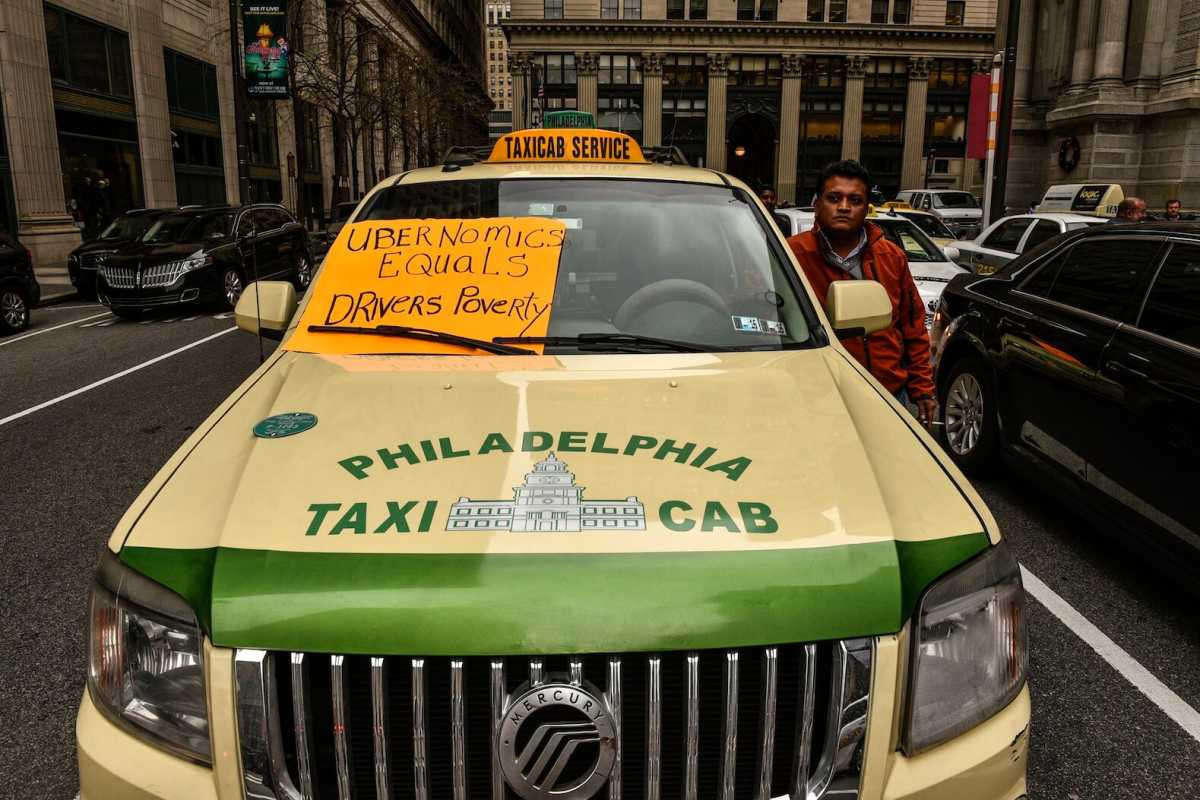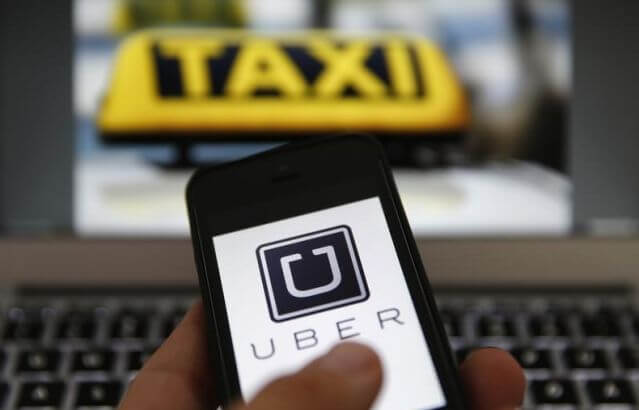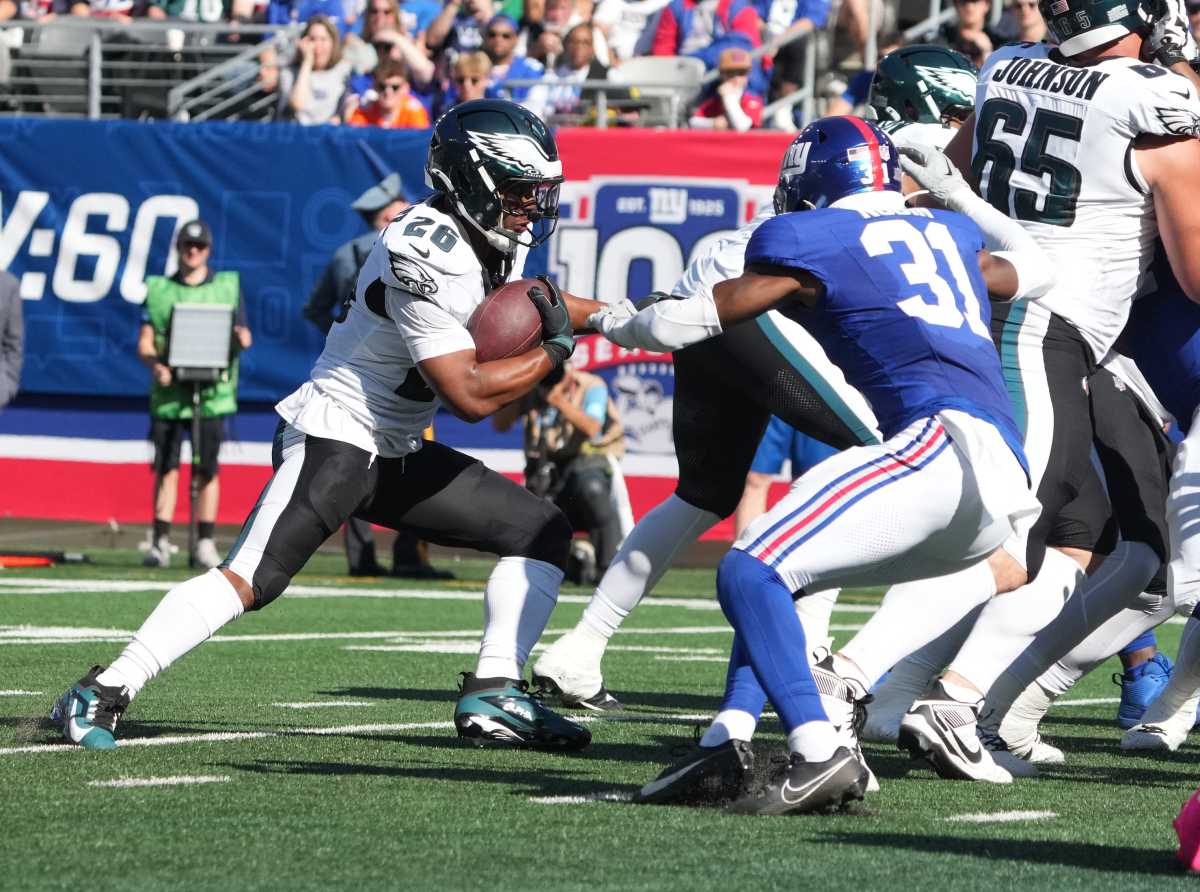Philly cab drivers who are steaming mad over the continued unregulatedoperations of UberX and Lyft in the city are threatening to boycott the Democratic National Convention (DNC) in July.
“UberX and Lyft [are] illegal. If it’s illegal, what is going on in Philadelphia?” asked Khalid Alvi, head of the Philadelphia Cab Association, which he said was founded in 2005 and represents 1,700 drivers.“We want an equal playing field.” The Philadelphia Limo Association — which includes Uber Black drivers, Philadelphia Taxi Association, and Alvi’s association issued a press release this week declaring that they will boycott the DNC if UberX and Lyft continue to operate illegally or if they are legalized by “unfair regulations.” RELATED: PHOTOS: Protest against UberX in Philly snarls traffic “My administration has met with both the Let Philly Ride campaign [a pro-Uber legalization coalition] and the authors of this press release,” Mayor Kenney said in a statement. “Following the meeting, we issued a public statement calling on Harrisburg to pass appropriate regulations on ridesharing services, since the mayor doesn’t have the legislative authority to do so. We’re hopeful state legislation will be passed in advance of the convention.” “Every driver is suffering,” said Ali Razak, head of the Philadelphia Limousine Association, which was founded in November and has 522 members, he said. “If I get a request from Mayor Jim Kenney, I’m definitely not picking him up. He knows what the issues are. The number one demand is labor law. Let us make a minimum living wage.” Razak said UberX and Lyft are “oversaturating” the market and hurting drivers like himself. He estimated his take-home pay from 120 hours of work as an Uber Black driver is about $600 after expenses. “There are about 150 UberX and Lyft drivers working with us. Their demand is the same. They want to make minimum living wage, they hate when Uber and Lyft keep adding cars,” he said. “They tell us how bad they feel when a cop comes by, how scared they feel, that ‘He might arrest me,’ they feel like a thief. This is real. That is the situation Uber is creating now … that’s what your teaching people, how to steal?” But not all advocates for cab and limo drivers support the boycott proposal. Ronald Blount, head of the Taxi Workers Alliance of Pennsylvania, called the boycott threat “a bluff.”
“If I was the mayor, I would call their bluff and say do it,” he said. “I bet my mother’s life they can’t shut the city down.”
Blount, who said his group is 12 years old and represents 4,000 drivers, said medallion owners are behind the boycott plan because rental fees for taxi medallions are crashing due to UberX and Lyft. “The city is going to hate us after this. This is actually making it easier for Uber and Lyft to come into the city unregulated,” he said.
Alvi dismissed Blount’s criticism.
RELATED: Uber sees chance to become legal in Philly
“He’s not even a driver,” Alvi said. “He doesn’t know the problems of drivers, he’s not in the field.”
Cabbies on the street Tuesday afternoon were split too about the boycott.
“You want us to stop working for three days? No way,” said Ramon, a driver for 30 years who declined to give his last name due to concerns of reprisal.
Another driver who has worked in Philly for 20 years, who declined to give his name at all, said he would be part of the boycott.
“We pay to be able to drive cabs. They don’t have to pay anything,” he said of UberX and Lyft.
The associations planning the boycott said they want UberX and Lyft drivers to have to pay commercial insurance, offer rides to the handicapped and go through the same PPA licensing process regular cabs go through. If those demands are met, the boycott is off. According to Uber, every driver has $1 million of liability insurance, and has to pass a background check.
Uber spokesman Craig Ewer called the plan “unfortunate” in an email.
“Uber is proud to serve Philadelphia and keep the city moving, especially during major events that attract visitors and boost the economy. It’s unfortunate that these groups have decided to put their own interests above the needs of the city,” he wrote.
Cabbies throw down gauntlet against UberX, threaten boycott of DNC

Charles Mostoller




























